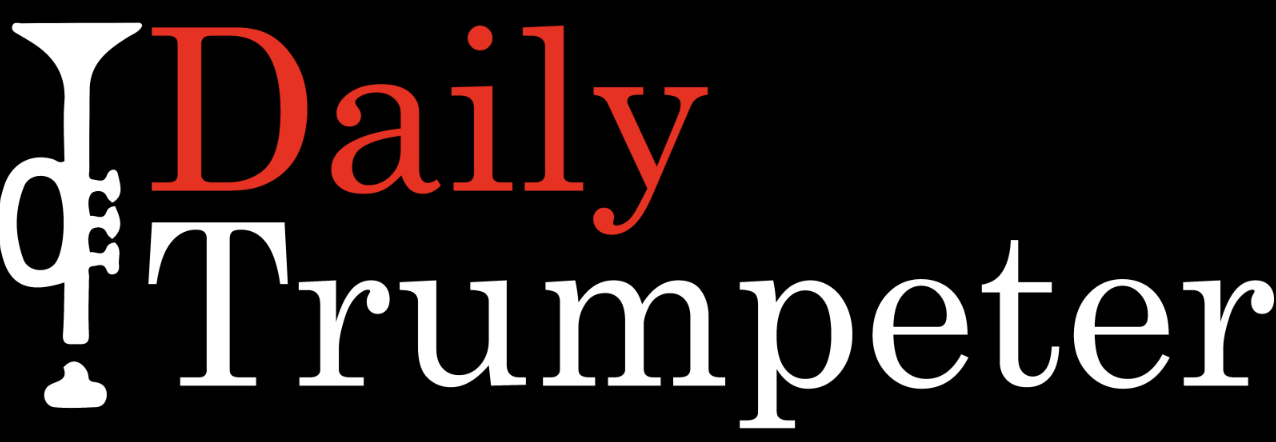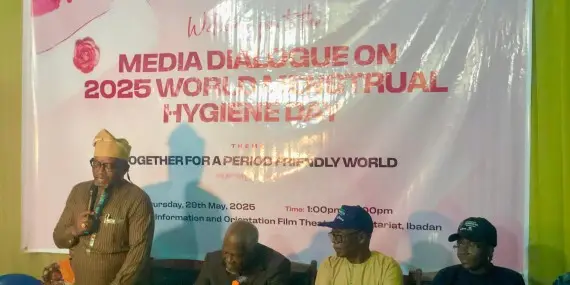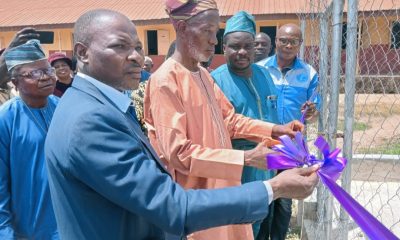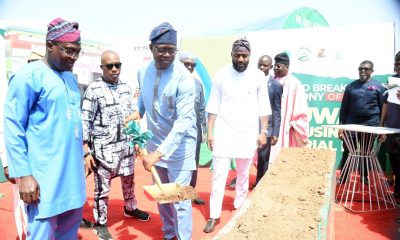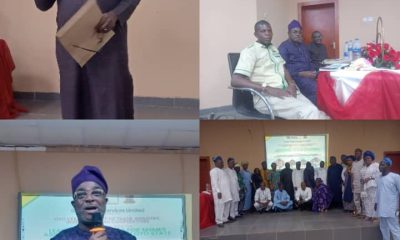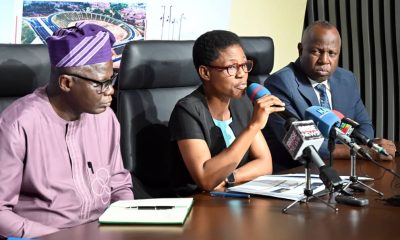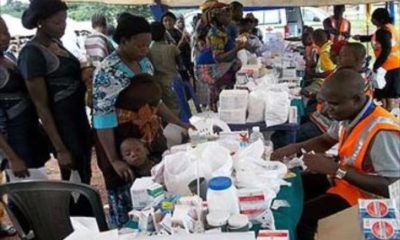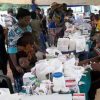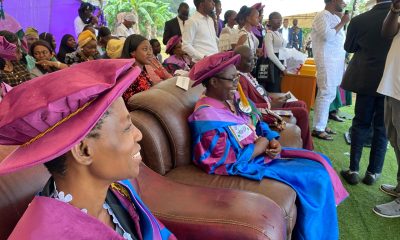Health
Oyo govt partners UNICEF over tackling menstrual stigma
The Permanent Secretary, Oyo State Ministry of Information, Mr. Rotimi Babalola, in his opening remarks, stressed the importance of breaking the silence around menstruation, saying “we can no longer afford to keep menstruation in whispers. The media must lead the change in dismantling harmful taboos and pushing for policies that protect the dignity and health of girls.”

The state Commissioner for Information and Civic Orientation, Prince Dotun Oyelade, on his part, described menstruation as a natural biological process that should never be a barrier to education or opportunity.
He lauded UNICEF for its continuous support in promoting health and dignity among women and girls, urging the media to use its influence to advocate for better access, affordability, and public awareness of menstrual health.
While delivering his presentation, UNICEF’s Water, Sanitation, and Hygiene (WASH) Specialist from the Lagos Field Office, Mr. Monday Johnson, noted that menstruation is still under-prioritized in public discourse and policymaking, despite its close ties to health, education, and gender equality.
According to him, “Menstruation is not a women’s issue; it’s a human rights issue. We are all products of menstruation. Yet only 24 per cent of girls in Nigeria have access to basic menstrual hygiene.
“About 23 per cent lack access to clean water, and between one per cent to 10 per cent of girls miss school during their periods. In fact, one in ten African girls does not attend school while menstruating, not out of choice, but because of systemic neglect.”
He emphasized that menstrual health also involves environmental dignity, highlighting how inadequate sanitation facilities in schools, lack of privacy, and the high cost of menstrual products contribute to absenteeism and poor self-esteem among girls.
“If we want girls to succeed, the government at all levels must subsidize menstrual hygiene products and provide functional water and sanitation infrastructure in schools”, he said.
On her part, UNICEF’s Communication Officer (Lagos Field Office), Mrs. Blessing Ejiofor, echoed the call for media advocacy, emphasizing the media’s crucial role in challenging stigma and influencing policy change.
Similarly, UNICEF’s Social and Behaviour Change (SBC) Specialist, Mrs. Aderonke Akinola-Akinwole, addressed prevalent cultural misconceptions around menstruation.
She said, “From being told they are unclean to being excluded from daily activities, many girls grow up seeing menstruation as a curse. These harmful beliefs damage self-worth. Menstrual needs are not a luxury, they are essential. We must equip girls with knowledge and access while engaging boys and men in the conversation.”
She then called for the expansion of community education programs and emphasized the need for male engagement to break the cycle of silence and shame.
Health Specialist at UNICEF Lagos Field Office, Dr. Ijeoma Agbo, in her closing remarks, spoke on the critical connection between menstrual hygiene and public health.
“Everyone has a role to play, parents, schools, health workers, and policymakers. Girls must have access to hygiene education and clinics when needed. Every school should be a safe and inclusive space where girls don’t have to hide their periods or miss classes. This is a matter of health, equality, and respect”, she said.
The dialogue ended with a call for stronger government commitment, increased budgetary allocation for menstrual health, and integration of menstrual hygiene into school health programs and national policy frameworks.
